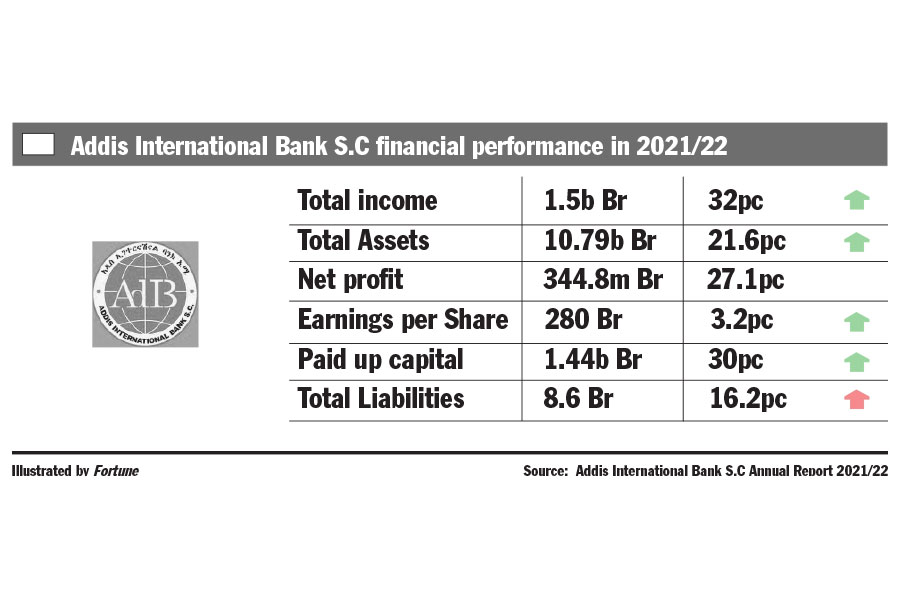
News Analysis | Apr 13,2024
May 25 , 2024
By Tesfahun Leta
In a recent recruitment drive at a prominent public university outside Addis Abeba, over 3,000 candidates sat for a written examination under the watchful eyes of invigilators. The event took an unexpected turn when numerous young examinees attempted to answer questions using mobile devices, smartwatches, and AI tools, defying exam protocols. The invigilators swiftly intervened, ensuring the integrity of the examination process. The incident illustrated the pervasive influence of technology in academic settings.
Along with some colleagues, our company assigned me a few weeks ago as an invigilator for a regional recruitment assignment at a prominent public university outside of Addis Abeba. The University auditorium was filled with over 3,000 candidates who qualified for a written examination.
The situation was smooth until the exam began. We positioned ourselves at the designated area to oversee and supervise all the movements in the exam hall. Subsequently, we discovered several young candidates trying to utilise their mobile devices, smart watches, ChatGPT, and other tools to respond to the questions effortlessly, neglecting the exam instructions. It is a considerable challenge for many invigilators in educational institutions and recruiting companies, as the younger generation increasingly relies on technology. We promptly implemented the necessary measures and effectively handled the situation until the end.
I remember how students in my time prepared for exams when the exam period approached. We were highly connected with hard copy reading materials, trying to memorise everything. I do not claim that our methods were perfect, but we were tech-independent and had a certain level of confidence in our ability to execute tasks autonomously.
My intention here is not to discuss the candidates' discipline or the measures we implemented. Rather, it is about how many of us are becoming dependent on technology devices to perform tasks.
Over the past three decades, digital technology has transformed our lives. People of all ages now take advantage of the vast amounts of available online information and communication platforms that connect them with others. The technology enables us to produce, store, and analyse large quantities of data and communicate quickly and effectively. The future will substantially reduce physical efforts as it progresses towards fully integrated Artificial Intellectual (AI) technology. The remarkable outcome will be evidence of the ingenuity of the human mind. Even mobile phones have AI-enabled features, which we Google whenever we seek information. We receive plenty of aggregated information with simple clicks.
Our generation has seen the most drastic jumps in technological advances, changing how we perceive the world and how our brains receive and process information. We seem unable to pull ourselves from our smartphones, tablets, and innumerable social networking platforms, keeping our devices near us all day. We have become such tech addicts.
Technological devices somehow affect human memory, attention, and sleep cycles. Our dependence on them has changed how we interact with nature and our natural abilities. Excessive dependence comes with its own set of emotional problems. The complaint is not so much about denying the importance of these devices. They are essential, and we will not be without them. Even though technology simplifies complicated tasks, we must understand the value of timing and context to harness our intellectual capabilities effectively.
I worry about the lack of understanding of when to employ technology. If the balance in the use of technology is tipped, human life and the human mind could be severely affected.
Technological evolution should not disturb our peace of mind or diminish our confidence in utilising our cognitive abilities. Unless people use technology sharply and become less dependent on devices, the brain might be restricted in functioning in areas of creativity and innovation. Students across all academic levels should use technology to access a wide range of reading materials, enhancing their critical thinking and creative skills, rather than solely being dependent on it.
In the same vein, educational institutions, including universities and recruiting companies, must change their traditional assessment methods to get the right talent, as they may no longer be effective. As technology devices proliferate, these institutions should enhance their methods to differentiate qualified individuals from the rest. The experience at the university recruitment event demonstrated to me the need for a balanced approach to technology use. While it offers numerous benefits, over-reliance can undermine the development of essential cognitive skills and independent problem-solving abilities.
As we steer through this digital age, it is important to strike a balance, ensuring that technology serves as an aid rather than a crutch. Such a balance will help future generations to benefit from technological advancements while maintaining their intellectual and creative abilities. The incident at the university serves as a reminder of the need for vigilance in integrating technology into our educational and professional practices, ensuring it enhances rather than detracts from human potential.
PUBLISHED ON
May 25,2024 [ VOL
25 , NO
1256]


News Analysis | Apr 13,2024

Editorial | Oct 28,2023

Radar | Dec 04,2021

Viewpoints | Aug 17,2019

Commentaries | Dec 14,2024

Radar | Apr 17,2021

Fortune News | Feb 11,2023

Viewpoints | Nov 09,2024

Radar | Aug 20,2022

News Analysis | Apr 22,2023

Photo Gallery | 151098 Views | May 06,2019

Photo Gallery | 141359 Views | Apr 26,2019

My Opinion | 134744 Views | Aug 14,2021

My Opinion | 131321 Views | Aug 21,2021

Dec 22 , 2024 . By TIZITA SHEWAFERAW
Charged with transforming colossal state-owned enterprises into modern and competitiv...

Aug 18 , 2024 . By AKSAH ITALO
Although predictable Yonas Zerihun's job in the ride-hailing service is not immune to...

Jul 28 , 2024 . By TIZITA SHEWAFERAW
Unhabitual, perhaps too many, Samuel Gebreyohannes, 38, used to occasionally enjoy a couple of beers at breakfast. However, he recently swit...

Jul 13 , 2024 . By AKSAH ITALO
Investors who rely on tractors, trucks, and field vehicles for commuting, transporting commodities, and f...

Sep 6 , 2025
The dawn of a new year is more than a simple turning of the calendar. It is a moment...

Aug 30 , 2025
For Germans, Otto von Bismarck is first remembered as the architect of a unified nati...

Aug 23 , 2025
Banks have a new obsession. After decades chasing deposits and, more recently, digita...

Aug 16 , 2025
A decade ago, a case in the United States (US) jolted Wall Street. An ambulance opera...

Sep 7 , 2025 . By NAHOM AYELE
Addis Abeba's sixth public land lease auctions after a five-year pause delivered mixe...

Sep 7 , 2025 . By BEZAWIT HULUAGER
Brook Taye (PhD), the chief executive of the Ethiopian Investment Holdings (EIH), is...

Sep 7 , 2025 . By BEZAWIT HULUAGER
For decades, Shemiz Tera in the Addis Ketema District of Atena tera has been a thrivi...

Sep 7 , 2025 . By NAHOM AYELE
A dream of affordable homeownership has dissolved into a courtroom showdown for hundr...